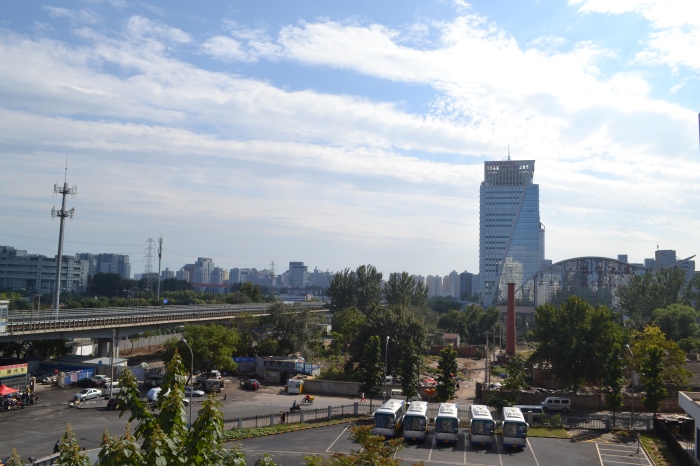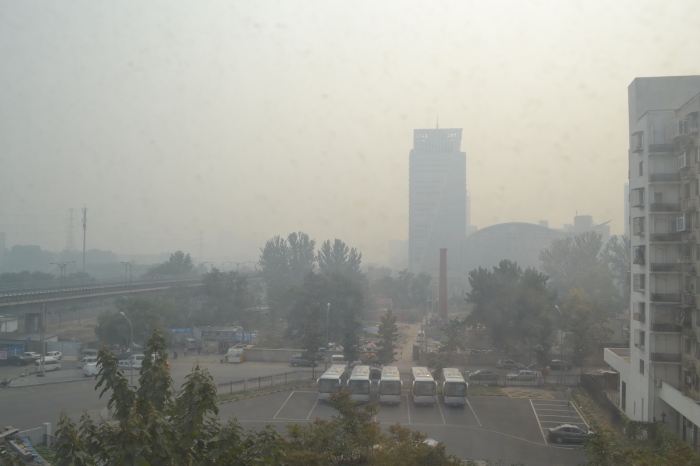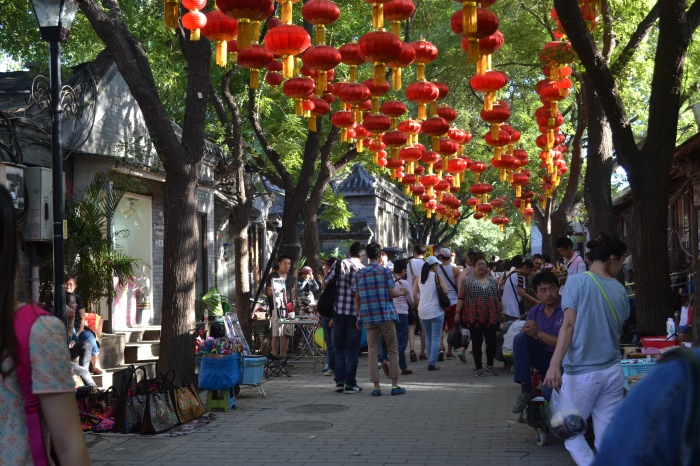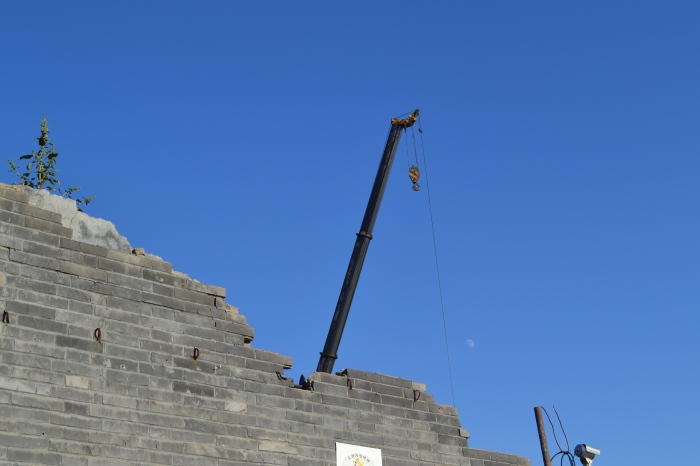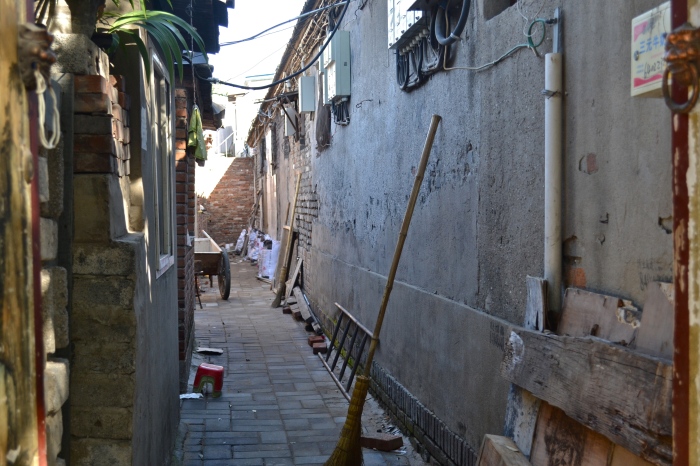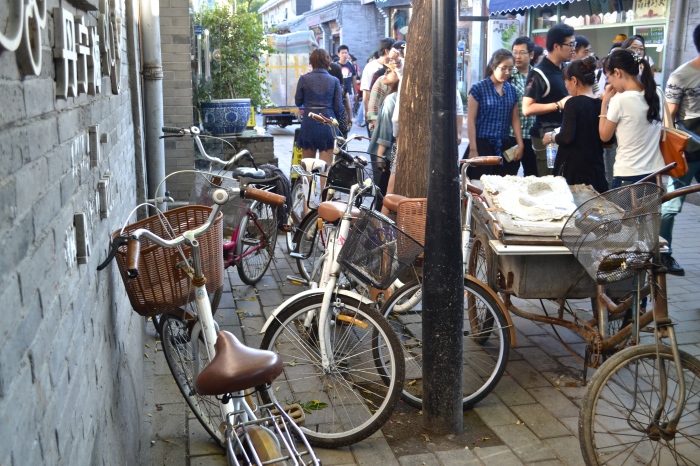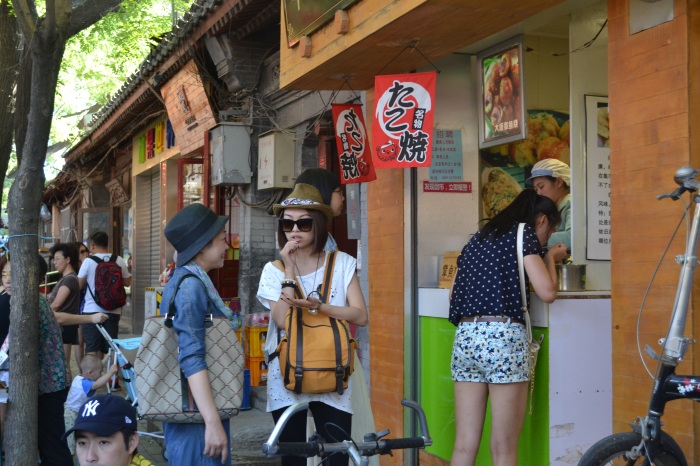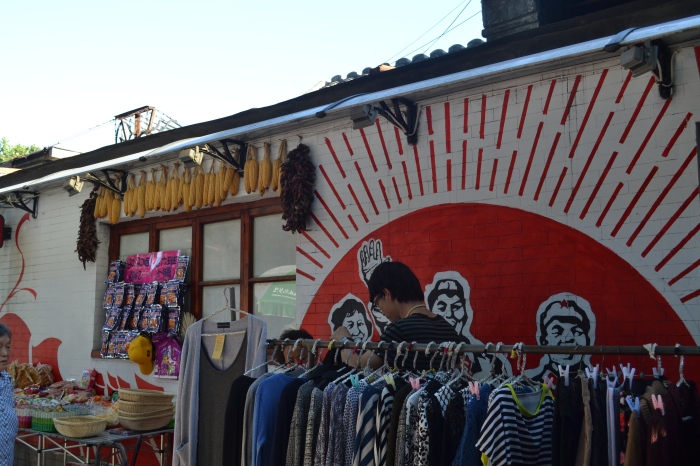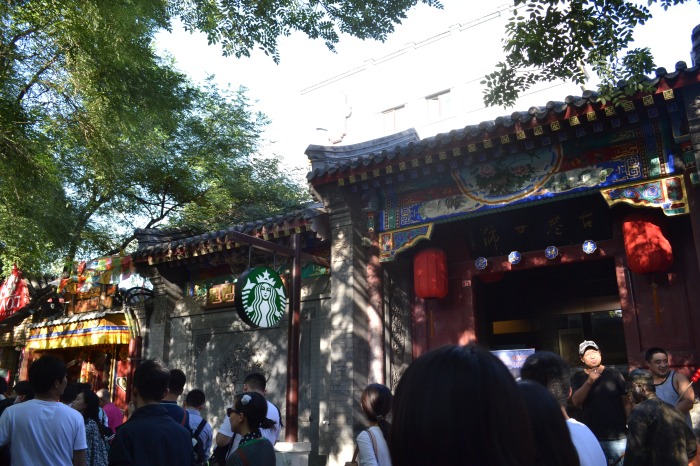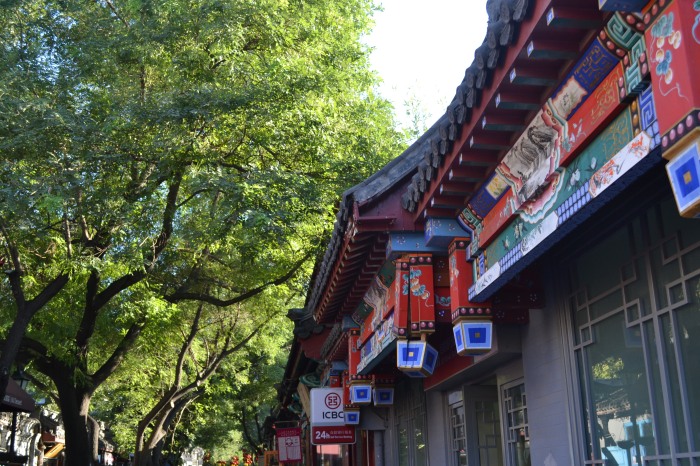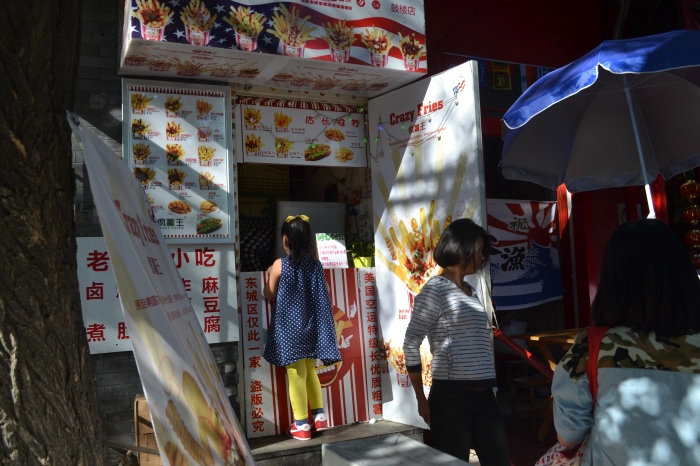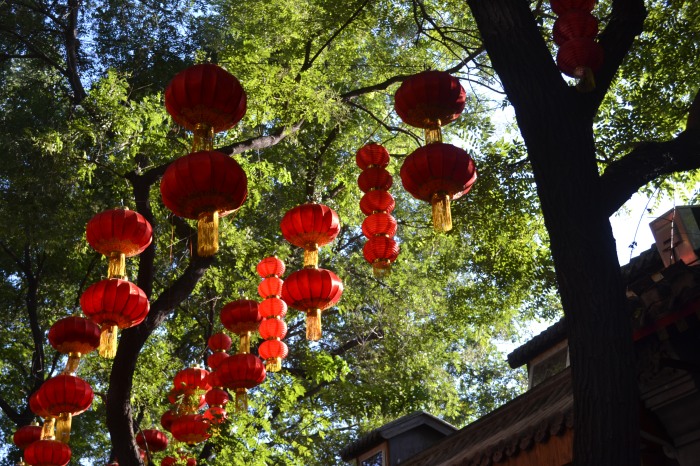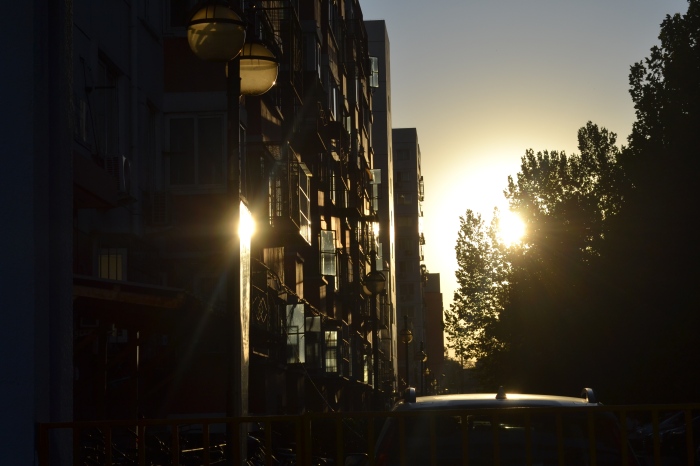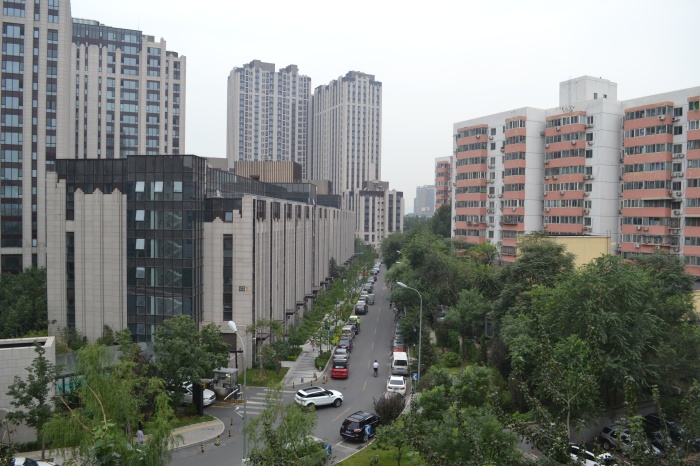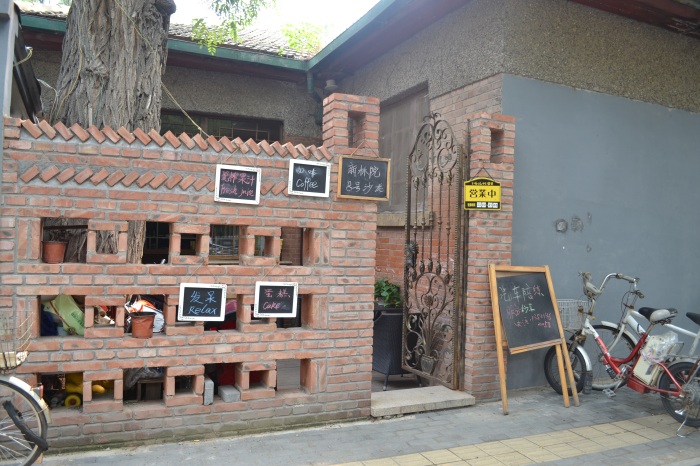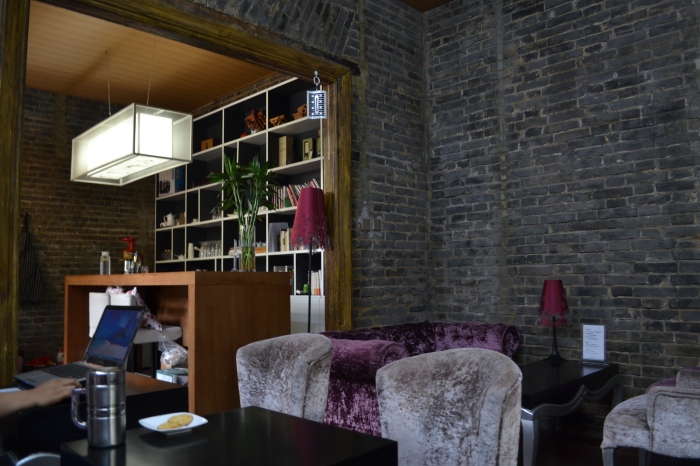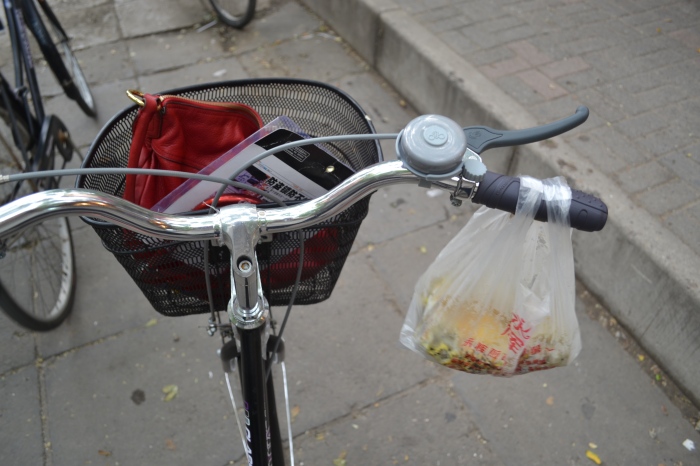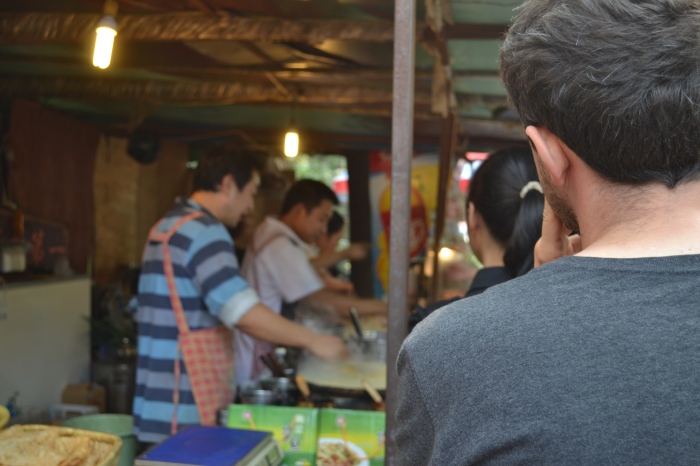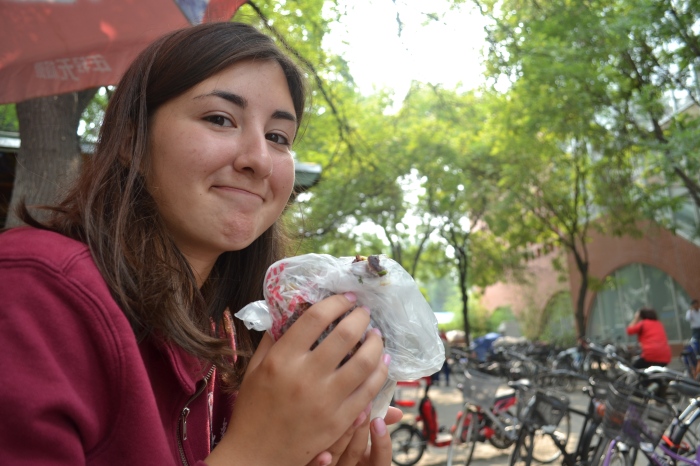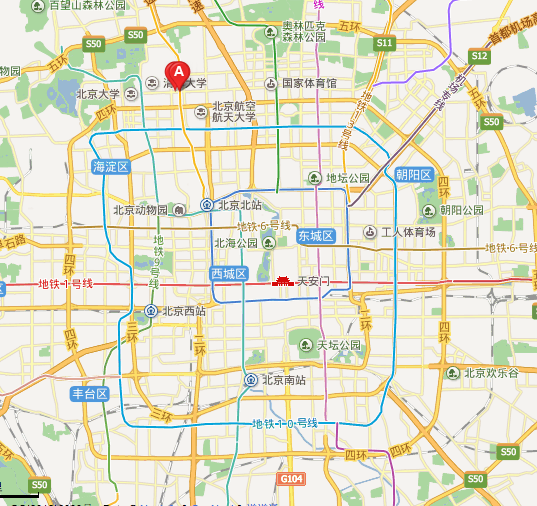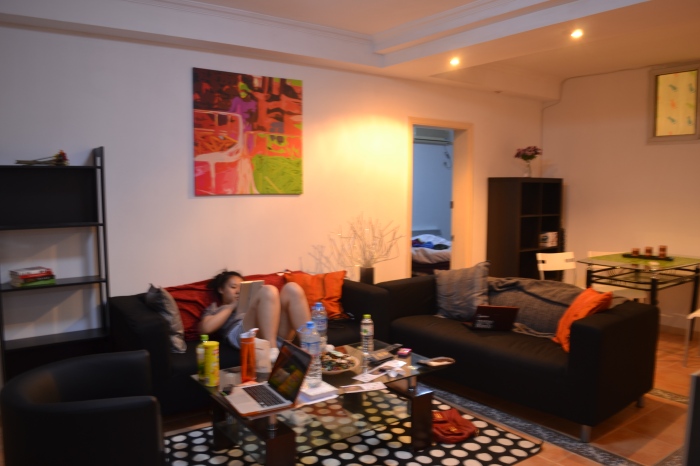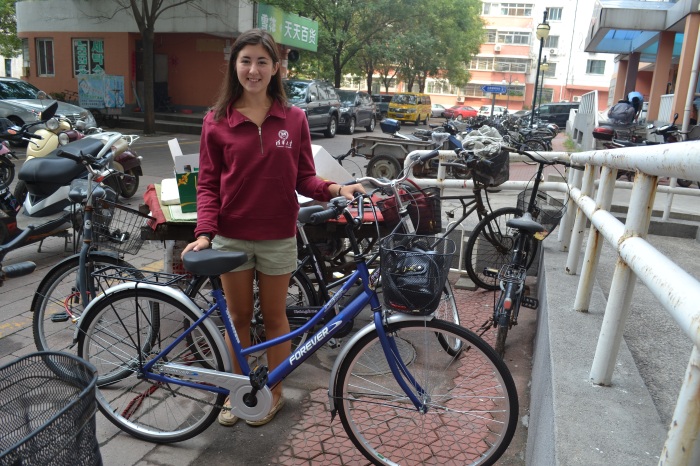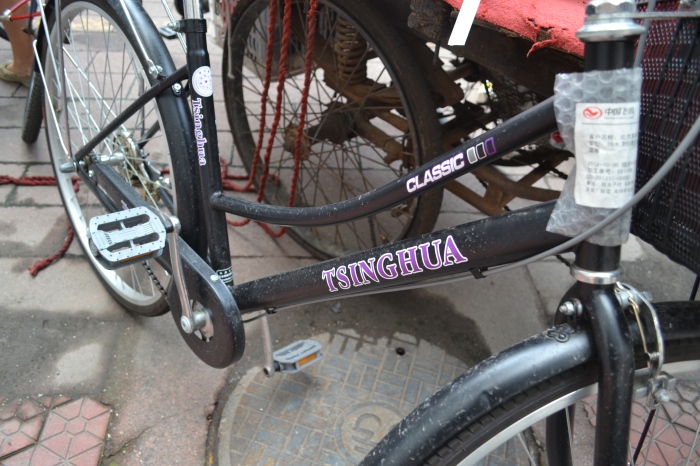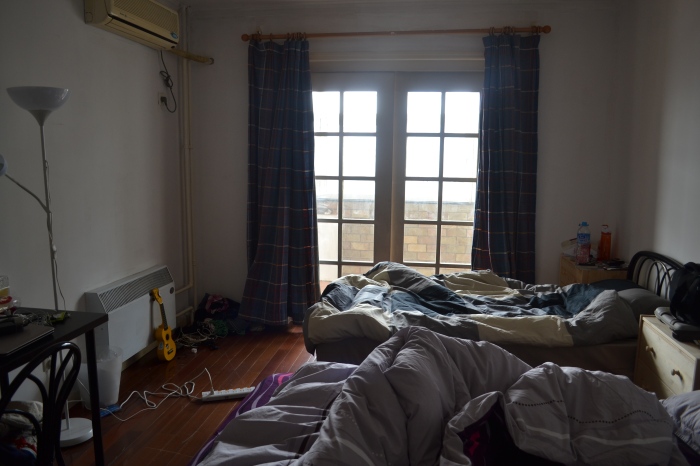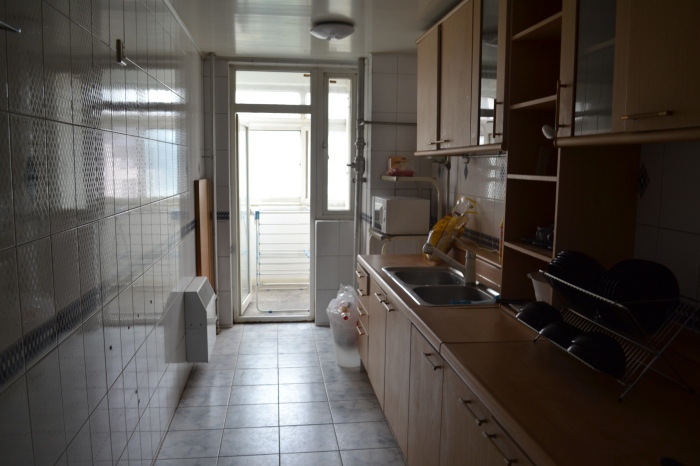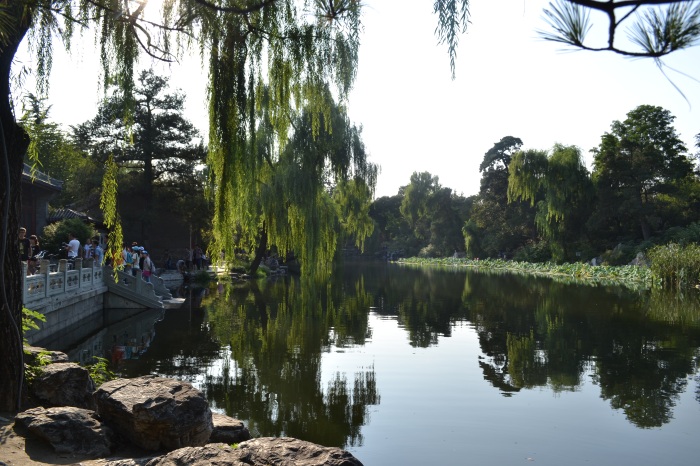I’ve been thinking a lot about this movie I saw recently called Land of Hope. It’s a Japanese film about people dealing with the aftermath of a Fukushima-like natural and nuclear disaster.
I’ve been thinking about it because when I’m not thinking/reading about China, I spend a lot of time reading about Fukushima, nuclear power, nuclear non-proliferation, etc., usually in Japan. But actually I’ve been thinking about how the film relates to China.
I’ve only been here a month, and in the cleanest season of the year in terms of air pollution. But already I have a new understanding of what living in a polluted city means. Before I got here I heard a lot about the air pollution problem, and in January I saw all those pictures of… well, not much. There was so much smog you literally couldn’t see a thing.
It hasn’t been that bad (yet), but we’ve had strings of hazardous days here and there that have been, if not debilitating, really fucking nasty. It’s never good when you go outside to buy water (because you also can’t drink the tap water here!) and you come back with an acrid taste in the back of your mouth…
But the reason this makes me think of that movie. The wife half of a young couple who was expecting a baby got really paranoid about radiation exposure. Like full-body-suit paranoid. She bubble-wrapped their apartment, made her husband wear a gas mask, and carried Geiger counters around everywhere. Her husband got increasingly worried since her mental health was noticeably deteriorating, and so they moved a few towns over.
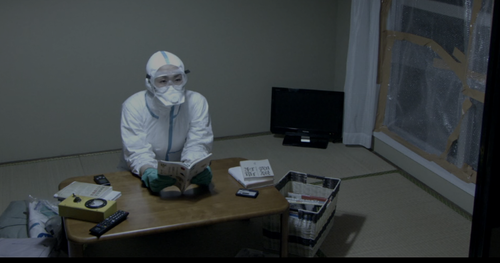
As they’re driving away from their old town, the woman opens the window of the car and, after a moment of hesitation, takes off her Hazmat suit. Cut to the near future, and she and her husband are mask- and suit-free on the beach in their new town. As they’re sitting there, the wife is talking to another young mother while the husband sits a bit further apart, so he’s the only one who notices when the Geiger counter starts clicking like mad. He stares at it for a little while, stares at his wife, and silently reaches this fever pitch of panic (I don’t know who the actor is, but man, this was a masterful moment) before he calms down suddenly. His wife beckons, he puts the Geiger counter down, and joins her without saying a word.
Okay, so after all of that… I’ve been thinking about the film in relation to China because the final scene in Land of Hope is about making peace with your surroundings even though your surroundings are going to kill you, probably. It’s about making a good life with what you can. You can lose your mind over the dangers you have to face everyday, or you can accept a shitty situation for what it is and try to have a fulfilled existence regardless. Which is, I guess, what 20 million people try to do, more or less consciously, in Beijing and around China every day.
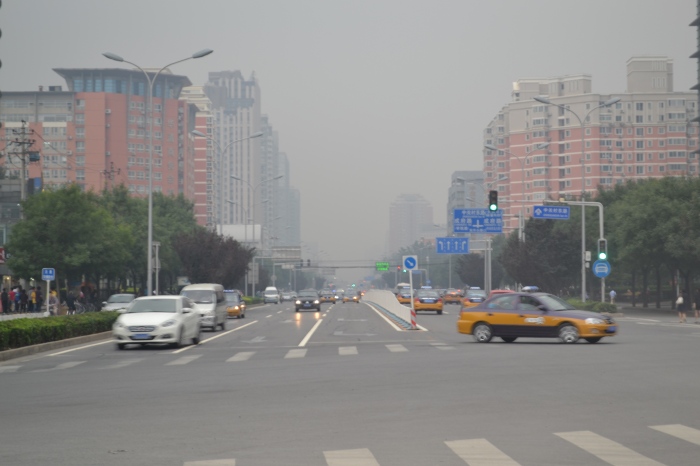
Still, I struggle to accept this because it’s so fatalist. On the one hand, you really will make yourself sick, mentally if not physically, over constant worry. On the other… poisonous air is not something you should ever have to accommodate, particularly if you live in Beijing full-time/have children/have asthma or something. So there’s a fine line between accommodating something awful just to have a peaceable existence and getting upset over something that you really shouldn’t have to deal with.
In the context of Beijing, people are remarkably good at coping: how bad is the air pollution, really? Because I see the US Embassy’s Twitter feed giving “hazardous” readings every hour for days, but then I go outside and there are maybe 3 people with masks and a whole bunch of people just chilling in parks and on campus, having lunch outside, walking around… It might even lead you to ask how bad is the air pollution, really?
I think it should be obvious that the answer is “It’s really fucking bad.” From an article I have cited, at this point, god knows how many times:
“Research suggests that air pollution can raise the risk of cardio-respiratory death by 2 to 3 percent for every increase of 10 micrograms per cubic meter of pollutants. Only 1 percent of China’s 560 million urban residents breathe air considered safe by European Union, according to a 2007 World Bank Study. A report released by China’s Ministry of Environmental Protection in November 2010 showed that about one-third of 113 cities failed to meet national air standards… In Beijing, the number of lung cancer patients has increased by 60 percent in the last ten years. The rising incidence rate of lung cancer coincides with drastic reduction in the incidence rates of stomach cancer and cervical cancer, which is thought to be a result of improvements in public health standards.”
Further, in 2010 alone air pollution was linked to 1.2 million premature deaths in China and was ranked fourth on a list of things that are most likely to kill you. Overall, air pollution has been found to significantly shorten lifespans in northern China across all age groups.
It’s not just China, to be clear. India, also, suffers really bad air pollution (although not where my girlfriend is, because she’s in the Himalayas where the air is ultra clean and I am supremely jealous every single day.) And of course, when London and New York were industrializing the smog reached deadly levels (also, that’s why New Yorkers notoriously wear black–you can’t see soot on black clothing). Not that that excuses China, exactly, but it’s not like this is an isolated phenomenon, and I definitely don’t want to point at China as this environmental disaster without acknowledging that the West started it (and continued it… and encouraged it in other countries… and now complains about it).
Why, though, is the air so bad? China’s economy is the second largest in the world and “slow” economic growth rates for China are something most countries can only dream of attaining. Why can’t they get their shit together and make the air breathable?
The main reason is coal. China is the world’s largest energy consumer, most of which is supplied by coal. (China is also the world’s largest producer and consumer of coal.) Coal is highly polluting, of course, but the situation gets worse when you look at how coal is used: primarily for heat and power. When you consider how cold some of the northern provinces get, combined with rapid industrial growth that demands a lot of power, it becomes clearer why coal is such a problem. And that’s not even getting into how air pollution is tied to buildings, which is what I spent some time researching last year.
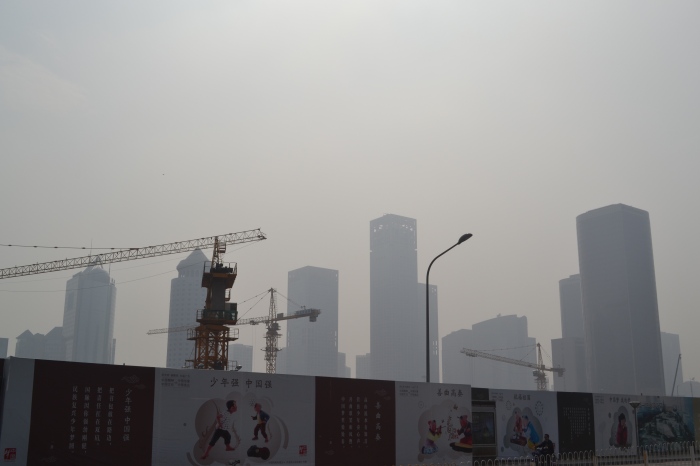
First of all, there’s a ton of construction going on, for better or worse, all the time (which also contributes to pollution, because dust). Entire neighborhoods are razed and rebuilt and taller and taller skyscrapers are being built every day. So the construction consumes a lot of energy, to be sure. China’s building sector accounts for 30% of the country’s energy consumption*. The problems, of course, don’t stop when the buildings are completed. Air conditioning and heating units consume more than half of the average building’s energy supply,** since it gets unbearably hot and cold in Beijing, that leads to huge energy demands. Thus there is a strong link between urbanization and energy consumption, which does not bode well for China’s air since urbanization keeps increasing (although Premier Li and co. seem to be looking to slow its roll (maybe?)).
Although China does a tremendous amount of work on developing renewable energy and other environmentally friendly initiatives, “The Chinese government has for years maintained a policy of free coal for boilers to generate winter heating north of the river, which runs parallel to and between the Yellow and Yangtze Rivers. That policy and the ubiquity of northern coal-fired factories have contributed to the vast gap between the coal pollutants emitted in north and south.” [x]
So that’s a problem. That, and the press for urbanization and industrialization. It’s therefore perfectly understandable why China has such bad air pollution–particularly Beijing, which is large, perpetually under construction, and also in the north. Talk about a fatal combination…
But even considering all that, I have a lot of hope for China. Even though the view out my window is hella depressing right now (and today the air is “moderate”!), the long-term view of energy consumption in China is pretty promising. First of all, the huge investments into renewable energy that I mentioned. Will it all be effective? Probably not. Is it more than the US is doing? Yeah, yeah it is.
Second of all, green building is totally taking off here. (Disclaimer: I’m going to ignore the work of foreign architects here.) Most, if not all, contemporary Chinese architects from Pritzker winners to my professors at Tsinghua place a heavy emphasis on building environmentally sustainable buildings that actually have a respectable lifespan and consume far less energy than the average building today. To be sure, there are a lot of problems with the execution of green buildings (for example, Tsinghua’s much-lauded environmental science building, which is supposed to be solar-powered and self-regulating has some pretty serious problems), but efforts are being made. That’s nothing to sneer at.
Third of all, people may be coping oddly well with the disgusting air, but that doesn’t mean they aren’t fighting to change it. Cao Jing, an economics professor at Tsinghua and World Bank consultant, is doing really interesting work in promoting a carbon tax and technology innovation in power plants. The government also recently announced a plan to curb coal use, particularly around Beijing, and to regulate heavily polluting vehicles.
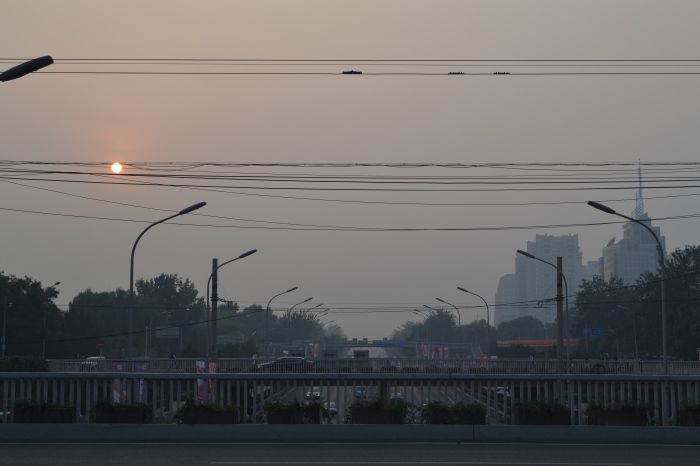
And this isn’t just good news for China. I’ve been spending a lot of time thinking about “alternative modernity” lately since the term came up in an architecture lecture a few weeks ago. Basically: modernization is very often used synonymously with westernization. As a result, when we talk about “development” we tend to talk about it like a linear process, like there are countries who are as yet “undeveloped” or “developing” because they don’t meet western standards. It’s assumed that a developed country should be an industrialized one, and should be a fully engaged member of the global economy, participating in international trade and free trade agreements, etc.
This conception of development often means that a country is going to be heavily polluting in the early years of its “modernization” as Japan, England, and the US were, and as China and India are today. “Developing” countries often have to rush to “catch up” with the rest of the world, which naturally leads to environmental degradation as rapid industrialization/urbanization = sloppy industrialization/urbanization.
The Environmental Kuznets Curve illustrates this.
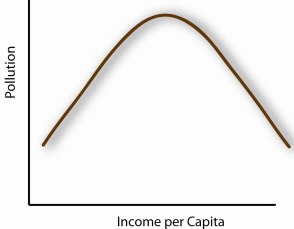
As income rises, so does pollution. So far, China follows this curve. Then, according to the curve, income continues to rise, but pollution drops as people become more educated and start demanding a better environment, as technology develops and becomes cleaner, etc. There’s a lot of logic to this, and it does seem that the “””developed””” countries of the world have followed this curve so far.
But it assumes a lot, at the same time. First of all, it assumes that a country will be able to save its environment after a certain point when it’s entirely possible that you’ll end up doing more damage than can easily be undone. Second of all, it assumes that environmental damage has to be done at all, which is where alternative modernity comes in.
I don’t think it should be taken as read that modernization = environmental degradation, or following in the West’s footsteps in terms of consumption and waste production. (Actually I don’t necessarily think modernization needs to mean industrialization at all, but this is largely a lost cause at this point.) As such, I think it’s incredibly valuable that China is investing so much lately in environmental protection because it provides a constructive example of sustainable development for other “””developing””” countries.
For all the talk about the fragility of China’s power, China is a fairly strong country carries weight in the world (and especially in the region). China has the unique ability to provide an alternative example of “””development””” from what the West has to offer. Rather than development meaning severe pollution and a growing dependence on automobiles, development can mean clean production, better cities, more environmentally friendly modes of transportation, and renewable energy.
China’s track record on all of these things has certainly been less than stellar, but it’s not too late to turn things around and start perpetuating some constructive, alternative modernities for the rest of the world to learn from–and maybe turn the idea of who we consider “””developed””” and “””developing””” countries on its head.
*Li, Baizhan and Runming Yao. “Urbanisation and its impact on building energy consumption and efficiency in China”. Renewable Energy 34 (2009): 1995.
**Ruili Hou, “Building Energy-Frugal Homes”, China Today, September, 2010.





